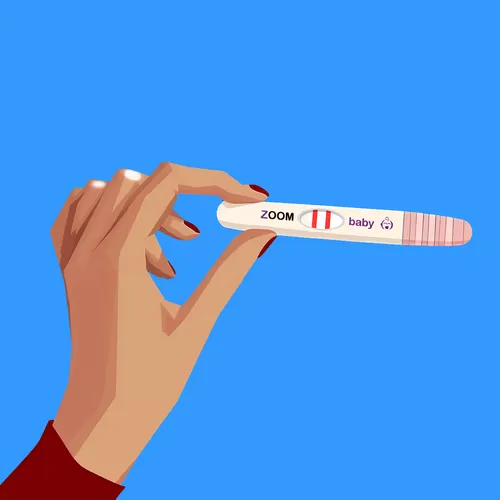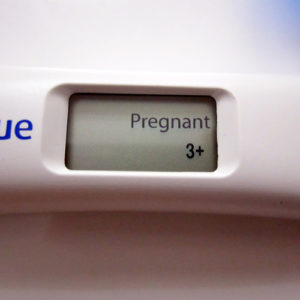It’s always a stressful situation when you are taking a pregnancy test, regardless of whether you were looking for a “PREGNANT” or a “NOT PREGNANT” result. A simple yes or no answer might not be enough since you have to deal with quite a bit when taking a pregnancy test, and for your peace of mind, the test result needs to be 100% correct. However, is every pregnancy test 100% right? The short answer is no and the following factors have to be considered.
If the pregnancy test results are not 100% reliable, it could be because you took the test too soon. Other factors that might affect the results of the test include being on fertility drugs, the test is past its expiration date, or certain medications.
Did you get a double line, but were hoping for a single line? Did you get a single line, but wanted a double line? Either way, you want to know that the test is 100% correct. What could produce false readings even on the best available pregnancy tests?
Testing Too Early
It is possible to get a false negative result. Taking the test just after conception is one of the most common causes for a false reading, particularly if the woman’s menstrual cycle is usually irregular or if she isn’t sure of the date of her last period. When is the best time for women to take a pregnancy test? Allow a minimum of two weeks following intercourse before taking a home pregnancy test.
Choose The Right Time Of Day
Also, you should also think about the best time to take a pregnancy test. Depending on when you take the test, the concentration of urine, and the pregnancy hormones in it, will vary. Diluted urine might cause a faint line on a pregnancy test or a false negative result. We always recommend that you test with your first urine, when you get up in the morning, after your longest sleep. If you are a shiftworker, this might be different, just make sure you test after waking from your longest sleep of the day.
HCG Interference
Even though false positive results are rare, they do happen. Some potential reasons are a mistake by the operator, specific diets, hCG interference resulting from infertility treatment, hCG secreting tumours and when the pituitary gland secretes hCG, mostly in women that are perimenopausal.
These situations are rare, so don’t worry and if the test is positive, enjoy it until your doctor tells you otherwise.
Choice Of Test
The accuracy of pregnancy tests can vary. It doesn’t mean the test that cost the most are the most accurate. Similarly, the cheap test could produce good or bad results. Always purchase a pregnancy test from online websites or stores that are reputable and be sure that the packaging has FDA and CE approval so that you know you can trust the test you are buying. At Zoom Baby we only stock highly-reliable pregnancy tests with a minimum accuracy of 99% when used correctly. Many high street pregnancy tests are accurate but must be taken correctly in order to avoid misleading results. Supermarkets such as Asda and Sainsbury’s stock their own brands of pregnancy tests, as do pharmacists such as Boots and Superdrug.
Expired Tests
Similar to medications, once a home pregnancy test has expired, it loses its accuracy and “potency”. Pregnancy tests have a shelf life of 2 to 3 years after production date. The cheaper ones usually have a shorter lifespan.
Medication Interactions
Although food won’t directly affect a pregnancy test results, some medications can. Certain medications used for infertility treatment, as mentioned earlier, along with specific diets, could produce a false-positive result.
Although urine and blood tests carried out by the doctor produce the most accurate results, in the majority of cases, if you have a missed period and a couple of dark lines on your home pregnancy test, there is a high probability that you are pregnant and the test is correct. As it says in the ad by Clearblue Digital, “It’s the most sophisticated piece of modern technology you’ll ever pee on.”
Reasons for Possible False Results
Even with advanced pregnancy tests, there is still a small chance of false negatives or positives. Some of the most common reasons for misleading results include:
False Negatives
- Testing too soon before hCG levels rise enough
- Improper testing technique such as diluted urine
- Some medical conditions like obesity or PCOS
False Positives
- Residual hCG from previous pregnancy or birth control injection
- Ovarian tumours producing hCG
- Date mix-up leading to testing after assumed conception
If you get an uncertain result, it’s best to wait a few days and try testing again with first morning urine. Ask your doctor for a blood test for more definitive results if still unsure.
While home pregnancy tests are generally reliable when used properly, it’s always wise to confirm a positive result with your doctor. A blood test can definitively measure the exact levels of hCG, the pregnancy hormone. This ensures you receive appropriate medical care and advice moving forward.
For example, your physician may want to rule out any complications like an ectopic or molar pregnancy. They can also estimate your due date more precisely based on hCG levels and perform any other necessary testing. Don’t hesitate to discuss any lingering doubts or questions you may have as well.
On the other hand, a negative result after missing your period could indicate the test was taken too early. Levels of hCG may not have been high enough yet to detect. Your doctor can guide you on when to retest or explore potential issues like irregular ovulation that prevented conception that cycle.
Types of Pregnancy Tests
While all tests check for the hormone hCG, there are some differences to keep in mind:
Urine Strip Tests – These offer fast, affordable results with over 99% accuracy from the day of expected period. However, proper technique is important to avoid inaccurate faint lines with diluted urine.
Digital/Indicator Tests – Easy to use and read format with words instead of lines. But less sensitive for early testing or uncertainty on conception date.
Early Detection/Sensitive Tests – Greater sensitivity to detect lower hCG levels 5+ days before period. Provide most reliable results up to 5 days sooner.
Choose the test appropriate for your needs and follow instructions carefully, although no home test is 100% foolproof. Discuss any uncertain results with your doctor promptly.
Photo credit; “Zoom Baby Pregnancy Test” by Anthony Cunningham for Zoom Baby
Zoom Baby is a leading supplier of Pregnancy Tests and Ovulation Test Kits





